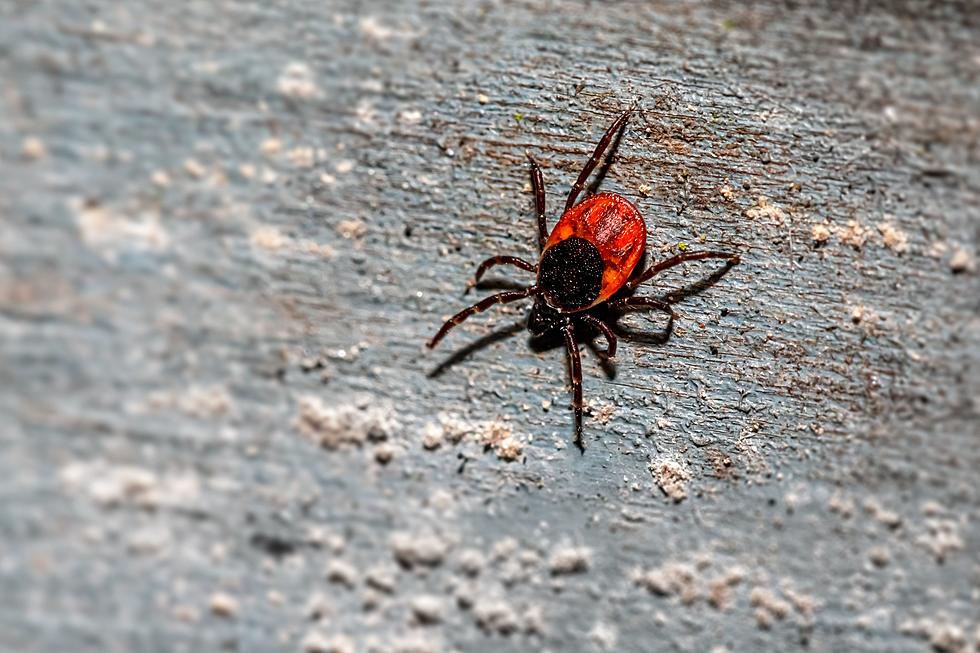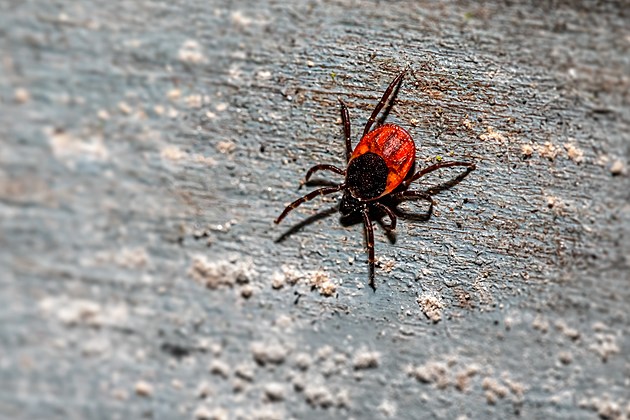
A Potentially Deadly Disease Caused By Ticks Spreading In New York State
 Photo by Erik Karits on Unsplash
Photo by Erik Karits on UnsplashThe Centers for Disease Control recently released a report warning that cases of a potentially fatal disease spread by ticks have increased in New York.
Babesiosis is an emerging zoonotic tickborne parasitic disease in the United States and occurs primarily in the Northeast and Midwest.
When Is Tick Season In New York State?
Young deer ticks, which are called nymphs, are active from mid-May to mid-August. Adult ticks become active a bit earlier in New York State - from March to mid-May and from mid-August to November. Ticks can become active anytime the temperature rises above freezing.
According to the Centers for Disease Control,
Babesiosis trends were assessed in 10 states* where babesiosis was reportable during 2011–2019. Incidence increased significantly in Connecticut, Maine, Massachusetts, New Hampshire, New Jersey, New York, Rhode Island, and Vermont.
Blacklegged ticks, otherwise known as deer ticks, are primarily responsible for spreading Babesiosis through their bites. The first known case was discovered in Massachusetts in 1969.
Babesiosis can be mild or severe - potentially fatal - to younger people who are immunocompromised.
Common symptoms of Babesiosis include:
- Fever
- Muscle/joint pain
- Headaches
In certain patients, severe complications can occur, including thrombocytopenia, renal failure, and acute respiratory distress syndrome. Babesiosis can be treated using a combination of antimicrobial medications, such as azithromycin and atovaquone.
Total Cases Of Babesiosis In New York From 2011 To 2019 - 4,738
2011 - 418 Cases
2012 - 253 Cases
2013 - 534 Cases
2014 - 471 Cases
2015 - 581 Cases
2016 - 430 Cases
2017 - 696 Cases
2018 - 641 Cases
2019 - 663 Cases
You can view the report here.
Ticks are not only spreading Babesiosis, but they also spread another devastating disease to humans.
What Is Lyme Disease?
Both nymphs and adult ticks can spread Lyme disease to humans.
Lyme disease is a bacterial infection caused by the bite of an infected deer tick. Untreated, the disease can cause a number of health problems. Patients treated with antibiotics in the early stage of the infection usually recover rapidly and completely. Since Lyme disease first became reportable in 1986, over 98,500 cases have been confirmed in New York State.
Not every tick is infected with Lyme disease. It depends on whether the creature they have been feeding on is infected. The tick also needs to remain on a human for a lengthy period of time to transmit the disease, according to the New York Department of Health.
In most cases, the tick must be attached for 36 hours or more before the bacteria can be transmitted. Lyme disease does not spread from one person to another. Transfer of the bacteria from an infected pregnant woman to the fetus is extremely rare.
What Are The Symptoms Of Lyme Disease?
- Two-inch rash resembling a bull's eye or solid patch (60-80 percent of cases)
- Chills and fever
- Headache
- Fatigue
- Stiff Neck, muscles, and joint pain
- Swollen glands
You can find more information about Lyme disease here

These 15 Reptiles Are Illegal To Own As Pets In New York State
9 Of The Deadliest Animals On Earth Can Be Found In New York State
More From 93.7 WBLK









